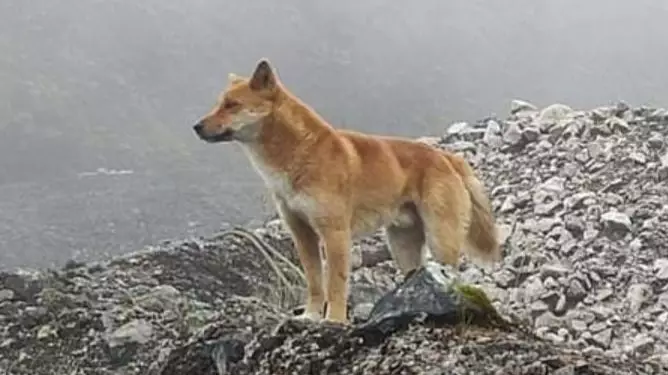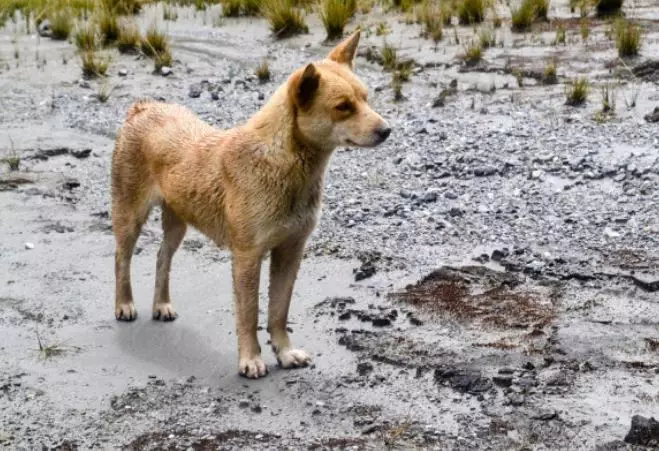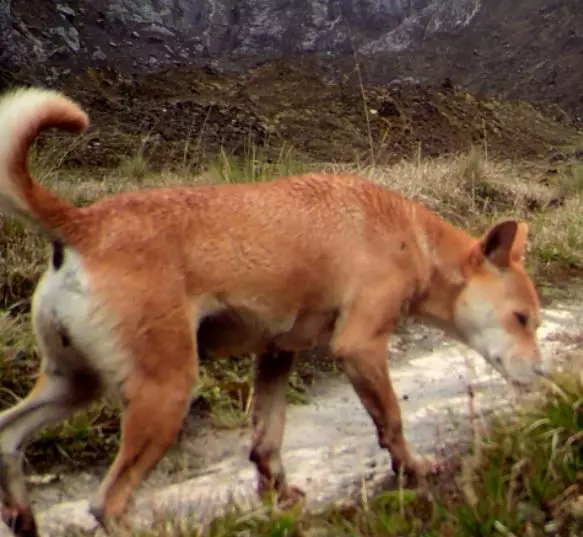
A breed of dog thought to have been all but lost in the wild has been spotted.
The New Guinea Singing Dog has not been viewed in its natural habitat for more than 50 years, but following research by the New Guinea Highland Wild Dog Foundation (NGHWDF) a major breakthrough has been made.
In 2016, a group of researchers travelled to Puncak Jaya, a mountain summit in Papua, Indonesia, and observed a pack of Highland Wild Dogs, a breed they found to have similar vocalisations to the Singing Dog.
Advert
They then returned to the area two years later and took blood samples from three of the dogs and compared them to that of a pack of captive New Guinea Singing Dogs.

And while years of inbreeding has led to physical differences, their genome sequences were remarkably similar.
Speaking about the incredible discovery, NHGRI staff scientist Heidi Parker, Ph.D. said: "We found that New Guinea Singing Dogs and the Highland Wild Dogs have very similar genome sequences, much closer to each other than to any other canid known.
Advert
"In the tree of life, this makes them much more related to each other than modern breeds such as German shepherd or Bassett Hound."
It's now believed that the Highland Wild Dog is the wild and original breed of the New Guinea Singing Dog population.
Elaine Ostrander, Ph.D., the senior author of the paper in the PNAS journal, said: "The New Guinea Singing Dog that we know of today is a breed that was basically created by people.

"Eight were brought to the United States from the Highlands of New Guinea and bred with each other to create this group."
Advert
According to the research, both breeds possess genomic variants that do not exist in other dogs that we know of today.
And this study, it is hoped, could help scientists preserve and expand the ancient breed of Highland Wild Dog.
Dr Ostrander added: "This kind of work is only possible because of NHGRI's commitment to promoting comparative genomics, which allows researchers to compare the genome sequences of the Highland Wild Dog to that of a dozen other canid species.
"By getting to know these ancient, proto-dogs more, we will learn new facts about modern dog breeds and the history of dog domestication. After all, so much of what we learn about dogs reflects back on humans."
Advert
According to reports, scientists are going to further study New Guinea Singing Dogs in a bid to learn more about the genomics underlying their vocalisation.
Featured Image Credit: New Guinea Highland Wild Dog FoundationTopics: World News, Animals